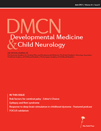
PEDIATRIC ORTHOPAEDICS
Pain management in children with cerebral palsy undergoing single-event multilevel surgery
Dev Med Child Neurol. 2016 Apr;58(4):402-8.50 children with cerebral palsy scheduled for single-event multilevel surgery (SEMLS) were included in this randomized trial. Each patient received general anesthesia and then epidural analgesia with bupivacaine and either clonidine or standard fentanyl , according to randomization. The purpose of this study was to determine if the addition of clonidine to epidural bupivacaine resulted in significantly improved pain relief and control of muscle spasms when compared to fentanyl throughout a 72-hour observational period. Secondary outcomes of interest included various potential side effects, including vomiting, sedation, administration of anti-emetics or paracetamol, and respiratory characteristics. The overall results demonstrated no significant differences in Diazepam use, the rate of muscle spasm, or mean pain scores over the first 72 hours between groups. Patients in the clonidine group had fewer incidences of vomiting, required fewer anti-emetic administations and had fewer combined nursing interventions , while patients in the fentanyl group had significantly increased oxygen desaturation and a decreased respiratory rate.
Unlock the full ACE Report
You have access to {0} free articles per month.Click below to unlock and view this {1}
Unlock NowCritical appraisals of the latest, high-impact randomized controlled trials and systematic reviews in orthopaedics
Access to OrthoEvidence podcast content, including collaborations with the Journal of Bone and Joint Surgery, interviews with internationally recognized surgeons, and roundtable discussions on orthopaedic news and topics
Subscription to The Pulse, a twice-weekly evidence-based newsletter designed to help you make better clinical decisions
Exclusive access to original content articles, including in-house systematic reviews, and articles on health research methods and hot orthopaedic topics
Or upgrade today and gain access to all OrthoEvidence content for just $1.99 per week.
Already have an account? Log in


Subscribe to "The Pulse"
Evidence-Based Orthopaedics direct to your inbox.
{0} of {1} free articles
Become an OrthoEvidence Premium Member. Expand your perspective with high-quality evidence.
Upgrade Now












































































